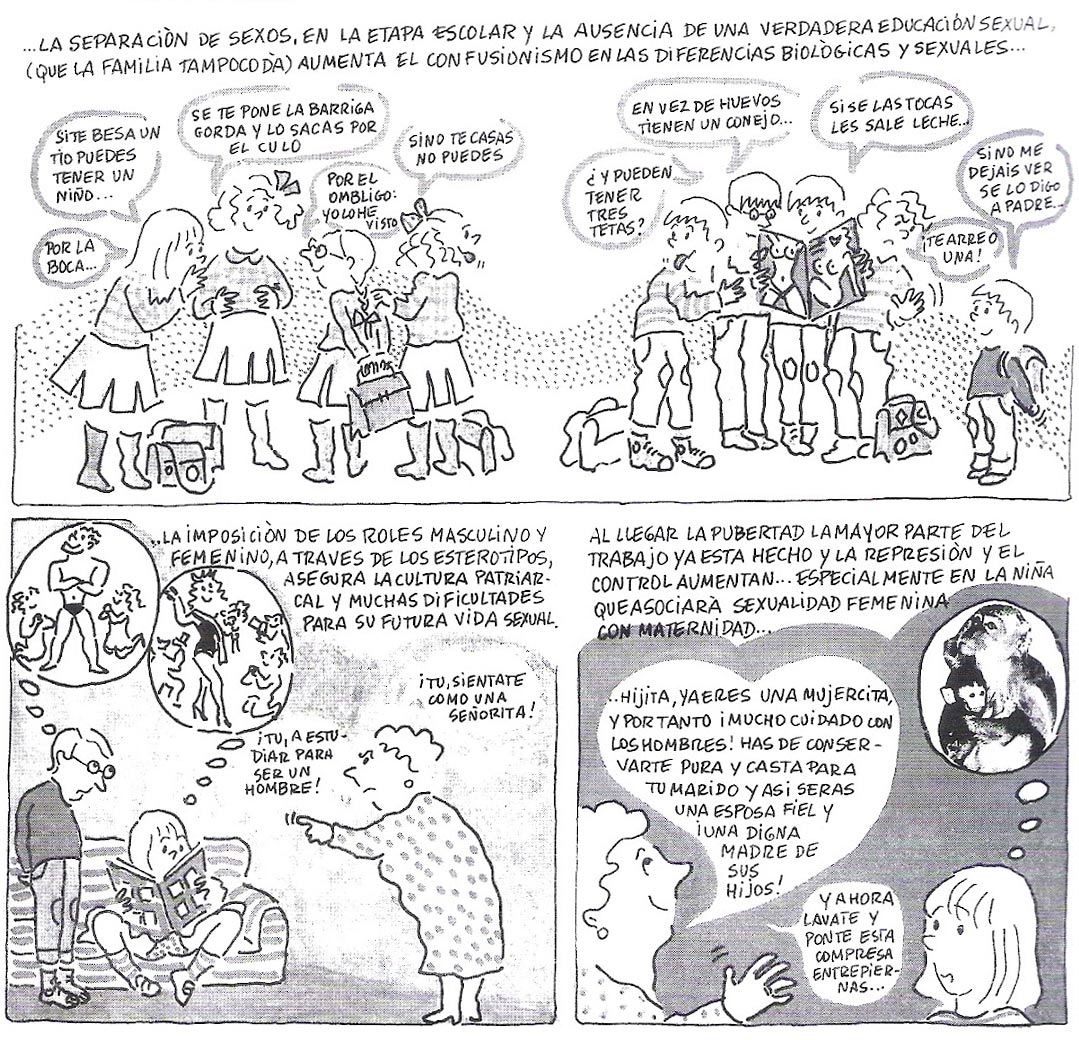La Represión Sexual (From: Por Favor)
Núria Pompeia was a Catalan cartoonist, graphic humorist, writer and journalist, who published work in Catalan and Castillian. She was one of the few female cartoonists active for the satirical press during the 1970s. Her cartoons and comics were characterized by a critical and comical look at social issues like class, the bourgeoisie, sexism and censorship, and had a strong relation with the feminist movement.
Life and career
She was born as Núria Vilaplana i Buixons in the Dreta de l'Eixample neighborhood of Barcelona, and took art courses from the Escuela Massana in that city. She started publishing her satirical works during the Franco regime, in Catalan children's magazines like Oriflama in 1969. She contributed to most of the important satirical magazines that appeared in the transition of Spain from a dictatorship into a democracy during the 1970s. These included most notably the openly anti-Franco magazine Triunfo, the feminist publication Vindicación Feminista (1976-1979) and the groundbreaking, satirical and ideological magazine Por Favor (1974-1978). She served as editor-in-chief of the latter in 1977-1978. Her regular column in the magazine was called 'Nosotras: Las mujeres objeto-ras', in which she mostly dealt with issues like decriminalization of adultery, equal employment rights between men and women and family planning.
She also served as chief editor for Saber, and she also published her work in Clij, Cuadernos de Pedagogía, Diari de Barcelona, Dúnia, El Món, L'Hora and Sábado Gráfico. Her artwork also appeared in the Italian magazine Linus, in Brigitte from Germany, and in Charlie Hebdo from France. Among her regular features were 'La Educación de Palmira' (with Manuel Vázquez Montalbán in Triunfo, 1970), 'La Liberadas' (Cuadernos para el Diálogo, 1976) and 'Ramoneta' (El Món, 1981). Book publications of her written and graphic humor include 'Maternasis' (Editorial Kairós, 1967), 'Y fueron felices comiendo perdices' (Editorial Kairós, 1970), 'Pels segles dels segles' (Edicions 62, 1971), 'La educación de Palmira' (Edicions 62, 1972), 'Mujercitas' (Editorial Kairós, 1975), 'Cambios y Recambios' (Anagrama, 1991) and 'Mals endreços' (Columna Edicions, 1997).
Social criticism was also an important part for Pompeia's work for other media, like her novels, short stories and journalistic pieces. She wrote cultural chronicles in La Vanguardia and worked as a scriptwriter for the Catalan TV station TVE. She was also director of the TV show 'Quart Creixent' in 1984. Núria Pompeia received the Gold Medal of the City of Barcelona for her artistic merit in 2000. In 2003 she was awarded the Rosa del Desert by the Association of Female Journalists of Catalonia, followed in 2007 by the Creu de Sant Jordi, one of the highest civil distinctions awarded in Catalonia. She received the Honorary Prize of the Collective of Comics Authors (Colectivo Autoras de Cómic) in 2013.





